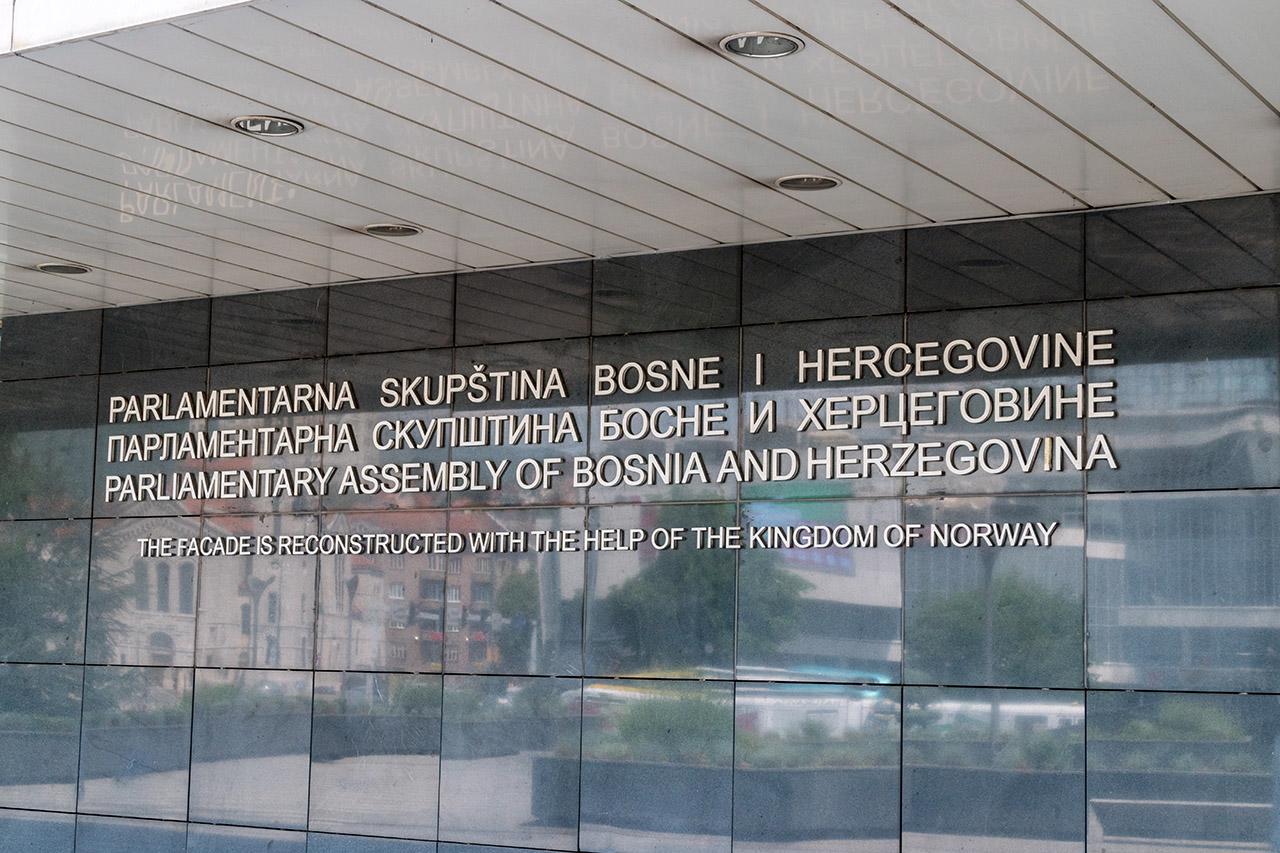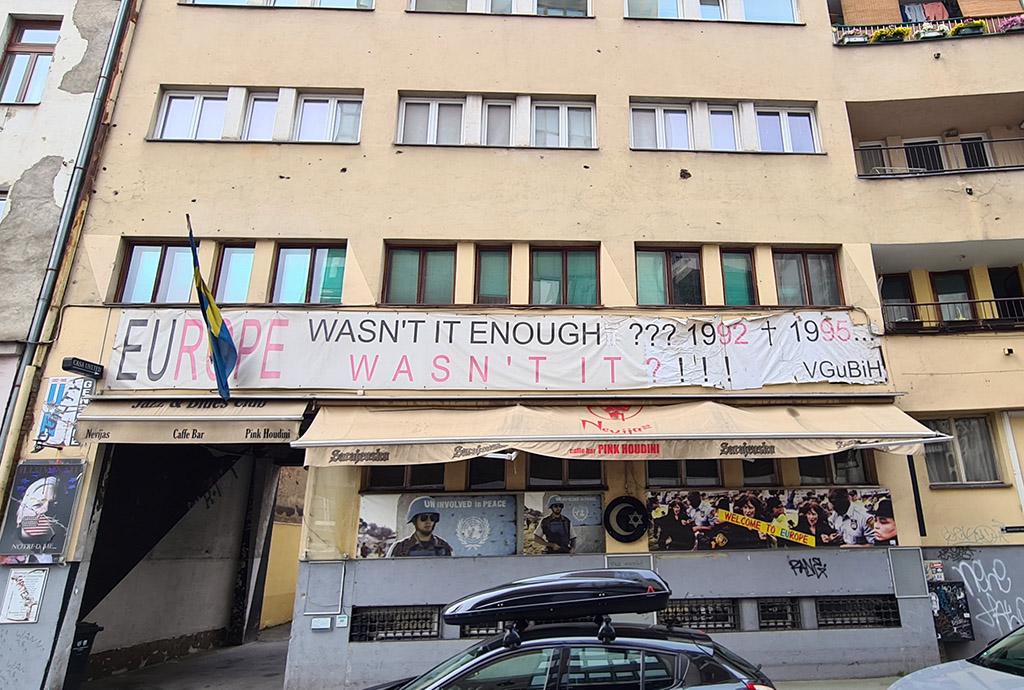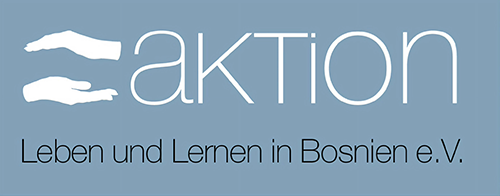THE CHALLENGE
Our film festival, organised on a voluntary basis by the association "Aktion - Leben und Lernen in Bosnien e. V." (Action - Living and Learning in Bosnia), took place and continues to take place – like any civil society engagement for BIH – against the sobering backdrop that the process initiated since the Dayton Agreement in 1995 to consolidate the permanent political provisional arrangement of BIH is still proving to be deadlocked today. Latent revanchism and well-organised ethnic nationalism have inexorably developed into insurmountable ideological, bureaucratic and corruption-ridden obstructive structures in the ethnically divided country over almost three decades. The leadership of the Serbian part of the country has not shied away from the radical and provocative questioning of the Dayton resolutions – in particular the role of the High Representative as the central authority. At the same time, any attempt to change this situation has so far been prevented by self-blockades by the overarching international institution of the Peace Implementation Council (PIC) – made up of over 50 participating states.
The geopolitical backdrop in the Balkans, which has been dramatically shaken by the Russian invasion of Ukraine, does not bode well for BIH in 2024. During the visit of the German Minister of Defence in April, the new military-strategic realities became explicitly clear in terms and tone. Firstly, in the call for a new, urgently needed "toughness of Europe". The accession of Finland and Sweden to NATO is seen as a strengthening of deterrence in the north-east. And the Balkans? Here, a term suddenly appeared that, almost 30 years after Dayton, ascribes to this region a conceivably fatal part of the body in the new, defensible anatomy of the European defence organism: that of the "soft flank".
However the terrible tragedy in Ukraine, now euphemistically referred to as the "war of fatigue", develops: For the Western Balkans, it could quickly lead to greater rifts than those that already exist today. The trenches between the sphere of influence of Putin's new "Great Russia", which has switched to an autocratically controlled war economy, on the one hand, and the West, which often seems to be overstrained by the systemic complexity of its own strength despite NATO's superior economy and huge arsenal of weapons on the other, run right through BiH and its neighbouring countries. As was the case 30 years ago, the exact course of these rifts is almost impossible to predict. And the West? Whether the EU countries, which are in many cases governed internally with only very narrow, fragile majorities, or the USA, which sometimes seems almost at risk of civil war during the election campaign: this very special situation could invite not only Putin, but also other forces interested in border shifts in the Western Balkans, and above all pro-Putin "Greater Serbian" nationalists in Belgrade and Banja Luka, to strike out again.





















